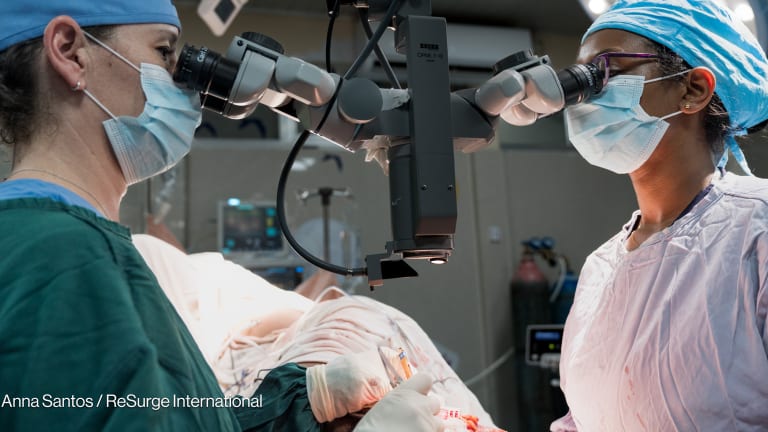Opinion: The world needs more anesthesia providers. Here's why.

Five billion of the world’s 7 billion people lack access to safe surgery. In many parts of the world, the limiting factor is often the lack of trained anesthesia providers.
Half of the countries in the world fall short of the World Federation Of Societies of Anesthesiologists’ recommended short-term goal of five anesthesiologists per 100,000 people — shockingly, some countries with millions of citizens report zero anesthesiologists. The lack of anesthesia care unfairly impacts people living in low- and middle-income countries as these have the fewest providers.
Even when anesthesia care is available in LMICs, research has proven that the risks involved are much greater than in higher-income countries. In comparison to the United States, maternal deaths due to epidural anesthesia occur 300 times more often in LMICs; for general anesthesia, deaths in LMICs are 900 times more common. These disparities in care are unacceptable.
More on health care:
► Mosul chemical attack exposes an ill-prepared health system
Consider the human impact of unsafe anesthesia: expectant mothers aren’t able to have a cesarean section to save their and their baby’s lives; simple fractures can’t be reset, leading to life-long disabilities; otherwise healthy adults die because they can’t have a basic surgery — an appendix removal, for example. In fact, anesthesia and surgical care is required to treat nearly all diseases, trauma, and obstetric emergencies. There is no way we can reach universal health coverage without prioritizing safe anesthesia and surgical care for all.
To truly address the scarcity and inadequacy of anesthesia services, we need to rethink how anesthesia is delivered. Task sharing has been a common practice in medicine in LMICs for many years, and now it is time to apply this approach to anesthesia. We can bring safe anesthesia care to millions of people by teaching qualified health workers, such as nurses, how to safely administer anesthesia, and empowering them to work together in teams that provide mutual support and accountability.
Alongside growing the number of anesthesia providers, we must also identify deficits, systems, and patient population factors that could reduce anesthesia-related complications and deaths in LMICs. Equally, the role of the anesthetist needs to expand beyond the operating room to include pre-surgical services, pain management, and post-operative care.
As with other areas of medicine, we need to embrace innovative training methods to expand the anesthesiologist and non-physician anesthesia providers workforce quickly and less expensively. For example, AIC Kijabe Hospital has deployed a unique mobile simulation training system, expanding its capacity to train more providers and provide ongoing training to existing providers.
Further innovation is also required in other areas, such as anesthetic equipment, medications, supply chain, oxygen availability, and sterilization, to name just a few. And, of course, we need to develop adequate funding strategies to accelerate and scale training for anesthesiologists in LMICs.
There is no surgery without anesthesia. Prioritizing safe anesthesia care and empowering a diverse workforce will help to prevent the 17 million deaths each year that are caused by surgically-treatable conditions. We need to act now to strengthen anesthesia care to allow us to reach UHC by 2030.
Search for articles
Most Read
- 1
- 2
- 3
- 4
- 5









